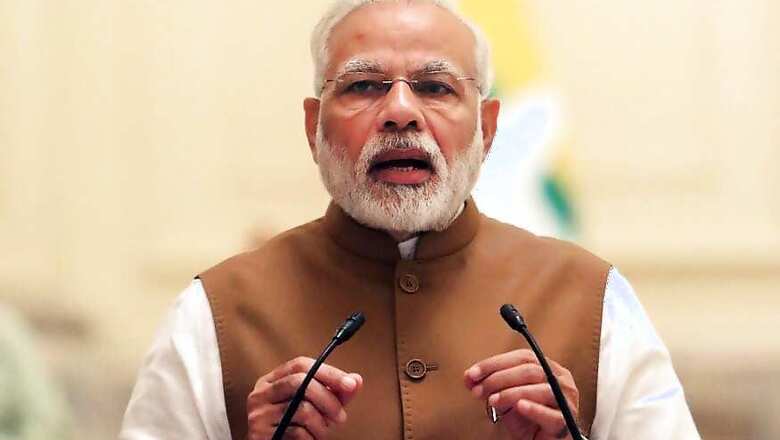
views
The BJP is somewhat short of people in its latter-day pantheon. Deen Dayal Upadhyay easily comes to mind. But his untimely death combined with a largely Hindi belt (mostly Delhi) persona has restricted his “reach” as someone whose name the party can invoke to strike a chord among people nationwide.
Savarkar is clearly a leading light in that pantheon. Shyama Prasad Mukherjee, who founded the Jana Sangh and was a forerunner of the BJP, has receded so deeply into the inner recesses of the party’s collective mind that Narendra Modi mixed him up with some obscure figure from Gujarat a few years ago. And that just about wraps it up.
The earlier reliance on divinity in general and Lord Ram in particular has clearly run its course. A party that is not only aiming for but fast approaching an all-India presence needs something more than mere divine intervention. It needs famous figures drawn from different parts of the country.
Hence, it began by appropriating people the Congress had abandoned after it came under family rule: Sardar Vallabhbhai Patel was an obvious choice although as India’s first Home Minister he had banned the RSS. It has since sought to takeover more and more such figures at a rate slightly slower than the number of disillusioned Congressmen and women it has welcomed into its fold.
In the process of doing so, the BJP has also reached far into the past to draw upon inspirational figures. Thus, Maharana Pratap has been fast replacing Abu'l-Fath Jalal ud-din Muhammad Akbar as a heroic and truly Indian hero from history. Alas, Shivaji has already been expropriated by the Shiv Sena, and quite obviously, Tipu Sultan is a no-no.
Swami Vivekananda falls somewhere in between these historic figures.
Widely touted by the BJP as a Hindu figure who took the words of the faith worldwide, Vivekananda has suddenly been transformed by Prime Minister Narendra Modi into what he was: a non-denominational reformer and a philosopher. This thought has resonated through the PM’s speech commemorating the 125th anniversary of Swami Vivekananda’s historic speech at the World Parliament of Religions in Chicago.
Although it also happened to be part of the Deendayal Upadhyay Centenary Celebration, the focus clearly was on Vivekananda.
After more than three years in power, Modi clearly recognizes the need to go non-denominational on a wider canvas. Swachh Bharat, for example, cannot be a Hindu or Hindutva programme alone. Nor can self-reliance and gender equality. Since this is no longer an election year, Modi can afford to be expansive. Indeed, he realises the urgent need to be more things to all people than he has ever been so far. Hence the appropriation of Swami Vivekananda has taken on the hoary old tones of “unity in diversity.”
That seems to have been Modi’s catch phrase in today’s speech. So, the Vivekananda who once merely spread the Hindu gospel to the world (as seen through BJP’s eyes) has now become someone who “would never be tired of showcasing India’s culture, talents and qualities. He would also never refrain from criticising the shortcomings of the nation… Vivekananda would also stop people from indulging in superstitions and narrow-minded ideas and ask people to explore new things and ask people to serve the nation and those in need. More than being in search of a Guru, Swami Vivekananda was in search of the truth,” according to Modi.
Modi invoked Vivekananda’s “unity in diversity” theme in a big way and even executed a “twist” on Vande Mataram by asking, “Do we have the right to chant Vande Mataram? I know this question would hurt many people. But how can we chant Vande Mataram when we dirty the country? Those who dirty their houses, their nation, should they also chant Vande Mataram? Those who clean the nation are the real sons and daughters of Bharat Mata.”
Perhaps as a counterpoint to his potential Hindutva rival in UP, Yogi Adityanath, Modi has surprised one and all by saying that “our first job is to build shauchalaya (toilets), devalaya (temples) come later… In University elections, candidates should also promise a clean campus”. Understandable since he was addressing a Students’ Convention.
But it does put paid albeit temporarily to the mandir movement that the UP CM is seeking to restart. Consistency being the “hallmark of fools” and given his predilections to stage about turns, Modi could always change his mind at some later date not too far into the future.
The Author is a senior journalist. Views expressed are personal.










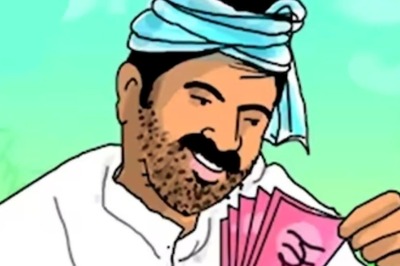



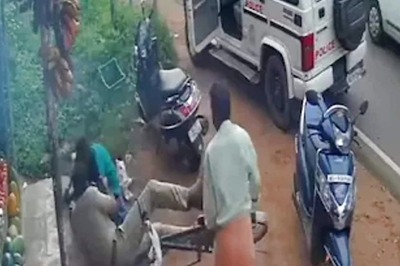



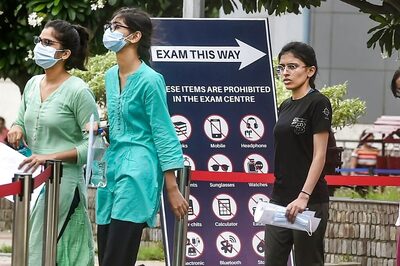
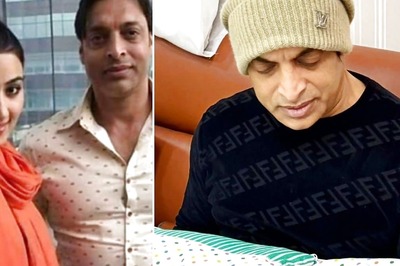
Comments
0 comment